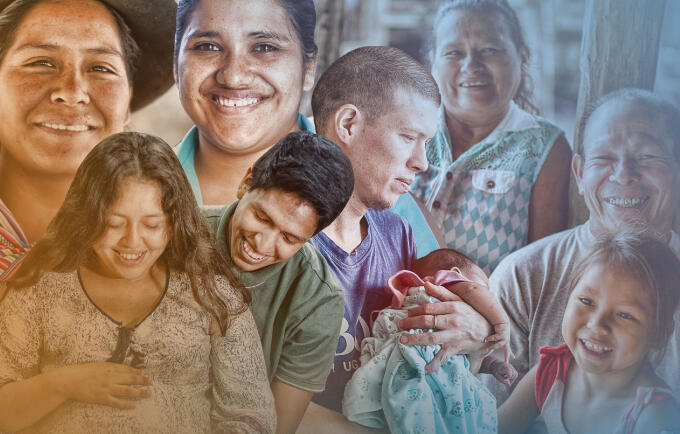Statement by UNFPA Executive Director Dr. Natalia Kanem on World Population Day
Peace in our world begins with peace in the home, as the United Nations Secretary-General stated in his call for a global ‘ceasefire’ on gender-based violence – a pandemic within the COVID pandemic. One woman in three experiences physical or sexual violence in her lifetime. Now, with countries on lockdown and household tensions heightened, gender-based violence is on the rise, and sexual and reproductive health services are being sidelined by health systems struggling to cope with COVID-19.
The COVID crisis has taken a staggering toll on people, communities and economies everywhere. Yet not everyone is affected equally, and as we so often see, women and girls tend to suffer most.
The impact of COVID-19 will likely hamper global efforts to achieve three ‘zeros’ at the heart of our work at UNFPA – zero unmet need for contraception, zero preventable maternal deaths, and zero gender-based violence and harmful practices against women and girls – by 2030. UNFPA projects, for example, that the pandemic will cut global progress towards ending gender-based violence within this decade by at least one third. Moreover, if mobility restrictions continue for at least 6 months with major disruptions to health services, 47 million women in low- and middle-income countries may be deprived of modern contraceptives, resulting in 7 million unintended pregnancies.
On this World Population Day, we call attention to the vulnerabilities and needs of women and girls during the COVID-19 crisis, and why protecting sexual and reproductive health and rights and ending the shadow pandemic of gender-based violence is imperative, especially in these challenging times.
UNFPA is working to ensure that the supply of modern contraceptives and reproductive health commodities is maintained and that midwives and other health personnel have the personal protective equipment they need to stay safe.
We are encouraged that so far 146 Member States have signed on to the Secretary-General’s call to make peace in the home a reality, and we are partnering to support them. As part of our COVID-19 response, we are innovating to deliver remote services such as hotlines, telemedicine and counselling, and gathering and using disaggregated data to support governments in identifying and reaching those most in need.
Positive public messaging around gender equality and challenging gender stereotypes and harmful social norms can reduce the risk of violence. In this, men and boys can and must be key allies.
Sexual and reproductive health care is a right, and like pregnancies and childbirth, human rights don’t stop for pandemics. Together, let’s put the brakes on COVID-19 and safeguard the health and rights of women and girls – now!
No organization or country can do this alone. The pandemic is a stark reminder of the importance of global cooperation. The United Nations, which this year marks its 75th anniversary, was founded to foster international cooperation to solve international problems. As the global community comes together in solidarity to survive this pandemic, we lay the foundation for more resilient, gender-equal societies and a healthier, more prosperous future for all.


